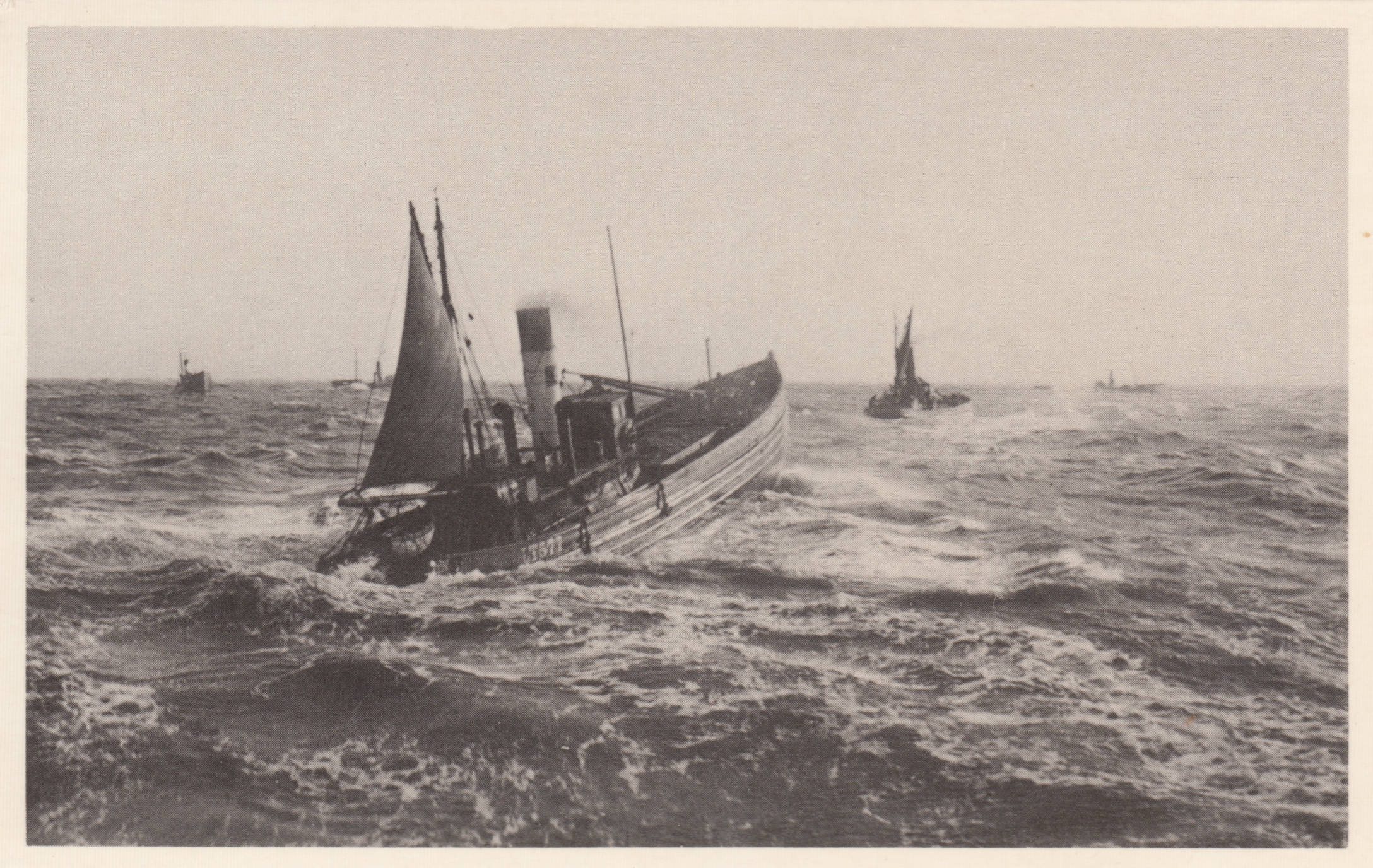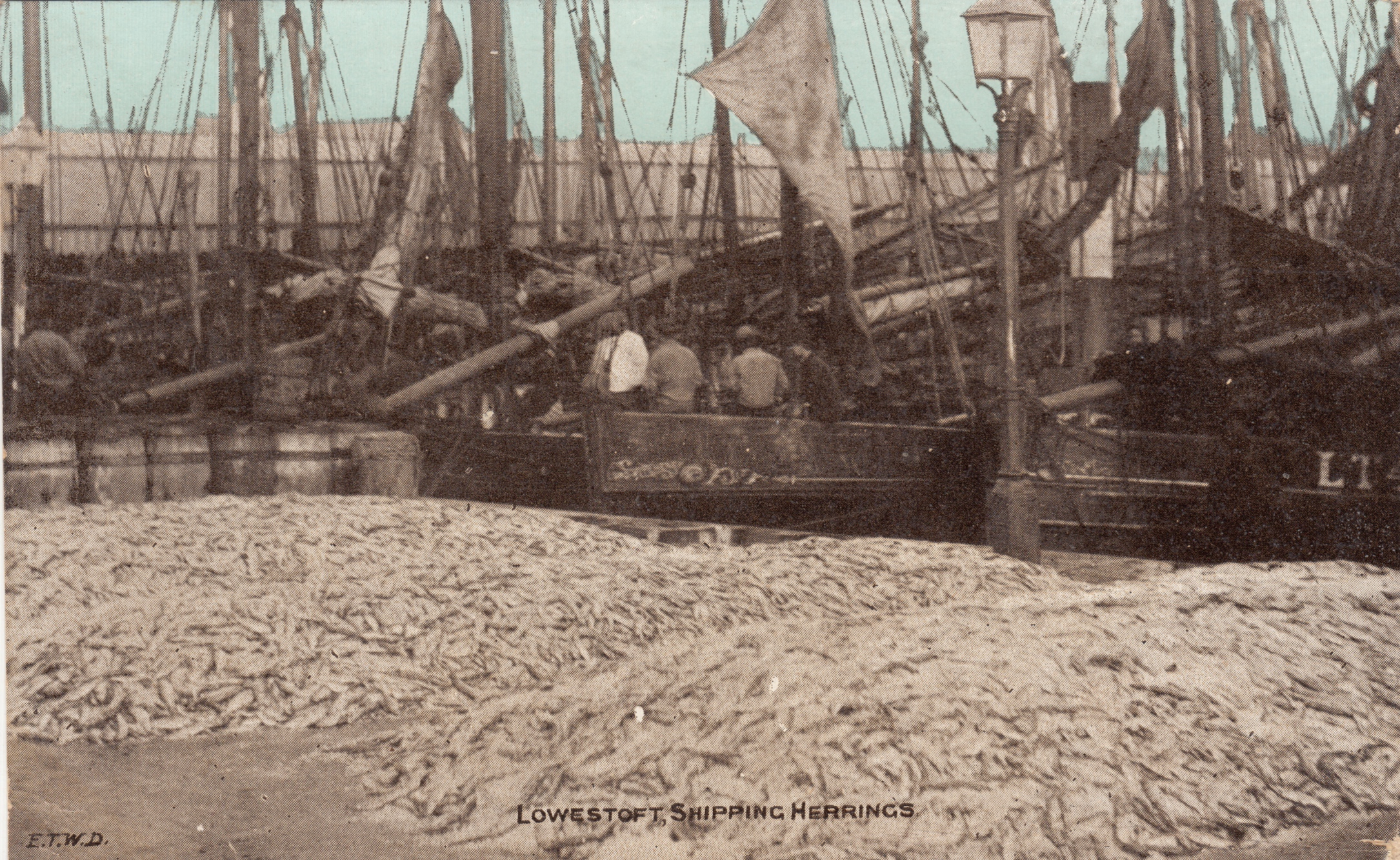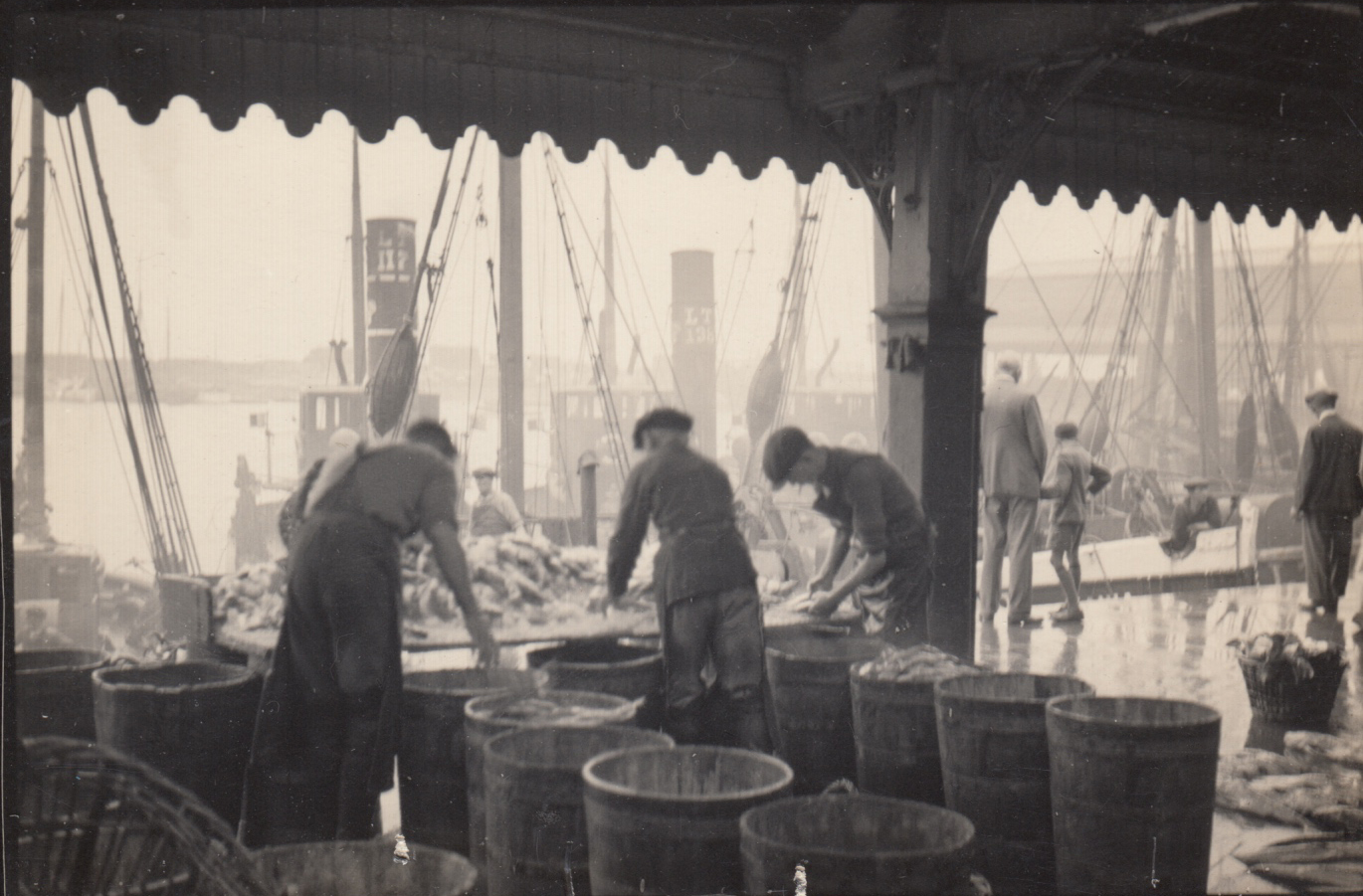



Allin, Sir Thomas (1612- 85) was a Lowestoft merchant who became well-known during the Civil War as a naval commander. He was in trade in Lowestoft and supported the Royalists and with them had several posts as commander-in-chief. He was a successful sea fighter and fought against the French, Dutch and Barbary Pirates. Later in his career he became an admiral and comptroller of the Navy. Alogt- Up in the rigging of the ship. Admidships or midships- midway between stem and stern, or when the rudder is in line with fore and aft with the ship. Anchor- an implement that lays on the sea bed and is held by a rope, cable or chain, and holds the craft in position in the water. Avast- from the Dutch houdvast (hold fast) and is a nautical order meaning stop or cease. A-weather- on the weather or wind-ward side A-weight- when the anchor is raised off the sea-bed and is then said to be a-weigh. Ay-ay or Aye-aye- a seaman's customary acknowledgement of an order. Backing and Filling- handling the sails so that the wind catches them alternately, before and behind, especially when the tide is against the vessel and it is navigating narrow waters. Ballast- Shingle, iron, or anything heavy to load on a ship to settle her in the water and give greater stability. A vessel is "in ballast" when she is carrying no cargo, just ballast. Banner- the rectangular flag, origionally a tall rectangle that is higher than it is wider, carried on a ship to indicate the presence of a king or other important person. Early medieval merchant ships also flew royal banners and you can see them depicted on the seals of ports. Barge- a flat-bottomed freight-boat used in inland river and canals, or a large, ornamented state or pleasure boat, or the second largest of the man o' war's boats (largest being a launch) or the boat used to carry flag officers. Barnacle- a type of shell-fish that attaches itself to boats, piers, etc. Ships heavily encrusted with barnacles don't move well in the water and so the barnacles have to be scraped (or careening) away. Barometer (or weather-glass)- an instrument for recording the pressure of the atmosphere with the most common type a mercury barometer, in which a column of air is balanced by a column of mercury and next to a graduated scale. On ships the preferred barometers are aneroid, precision aneroid and barograph. When the barometer registers a sudden drop in barometric pressure it could mean a storm coming up, and before the age of weathermen and satellite radar, that might be the only warning a ship would have of storms. Barque (or bark)- a small, three-masted sailing vessel, having fore and main mast square rigged and a mizzen mast for and aft rigged. Barquentine- A small, three masted sailing vessel, with fore mast square rigged and the other two masts for and aft-rigged. Batten the hatches- to secure all the hatches (openings on the deck) firmly shut against bad weather. Beach (on the beach)- a ship that has been temporarily or permanently put on shore Beam- the width of the ship at its widest part. Beat- to make way against the wind Beaufort Scale- a numerical scale for assessing the force of the wind. Named after Sir Francis Beaufort (1774-1857), an admiral and hydrographer. Becket- a ring or loop of rope, or a hook, used to hold ropes and spars in position. Belay- to fasten a running rope by making it fast around a strip of wood or belay pin. An order to stop or cancel. Bend- a knot by which one rope is fastened to another or a spar, etc. Bermuda Rig- Seen on most modern yachts, a mainsail, headsail and no bowsprit. The Bermudan sail is triangular, tall and narrow enabling the boat to sail very close to the wind. Berth- Place for mooring a ship at a quay, wharf or dock. Room in ship where officers feed and spend off-duty time, a post or assignment on a ship. To give wide berth means to clear or deliberately avoid something. Bilge- The broadest part of the ship's bottom. Bilge water is the water allowed to collect at the bottom of the ship, which was often quite foul. Bill of Lading- a statement or description of the ship's freight or cargo. Blue Peter- a blue flag with a white square in the centre, hoisted as a signal that the ship is ready to sail. Board- to go on a ship, to attack or to enter by force. Boat- a small vessel, usually without a deck and propelled by oars, but the same word also applies to engined craft ,
Do you have Lowestoft-interest photos to add to the database or want to contribute an article? Or do you have a correction or comment? More information about adding to the site is here.
Events, clubs and Lowestoft news of interest to history buffs are updated here. Do you have an event or club you want posted? Let us know!
Find out what's new on the site. New images and commentary are uploaded and updated daily.